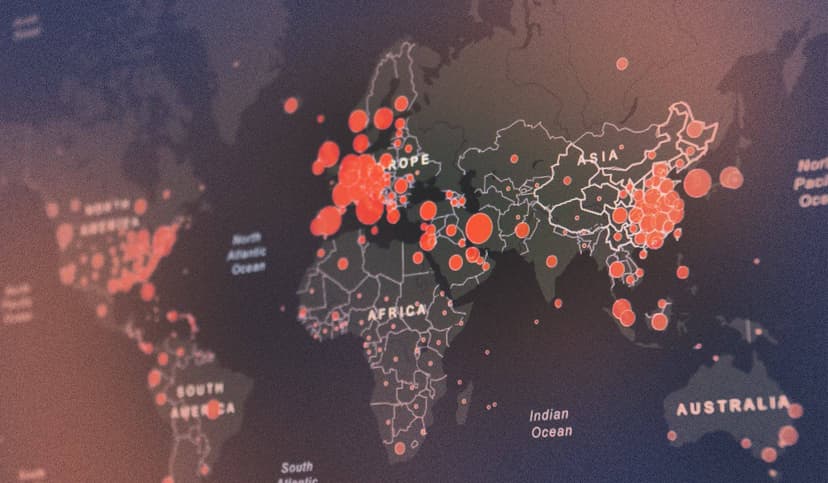Category
Attack pattern
Elastic Security Labs has identified REF4578, an intrusion set incorporating several malicious modules and leveraging vulnerable drivers to disable known security solutions (EDRs) for crypto mining.

Sinking macOS Pirate Ships with Elastic Behavior Detections
This research looks at a recently found macOS malware campaign using the macOS Endpoint Security Framework paired with the Elastic Agent to hunt and detect the behaviors this malware exhibits.

Unmasking a Financial Services Intrusion: REF0657
Elastic Security Labs details an intrusion leveraging open-source tooling and different post-exploitation techniques targeting the financial services industry in South Asia.

Elastic catches DPRK passing out KANDYKORN
Elastic Security Labs exposes an attempt by the DPRK to infect blockchain engineers with novel macOS malware.

GHOSTPULSE haunts victims using defense evasion bag o' tricks
Elastic Security Labs reveals details of a new campaign leveraging defense evasion capabilities to infect victims with malicious MSIX executables.

The DPRK strikes using a new variant of RUSTBUCKET
Watch out! We’ve recently discovered a variant of RUSTBUCKET. Read this article to understand the new capabilities we’ve observed, as well as how to identify it in your own network.

Initial research exposing JOKERSPY
Explore JOKERSPY, a recently discovered campaign that targets financial institutions with Python backdoors. This article covers reconnaissance, attack patterns, and methods of identifying JOKERSPY in your network.

Attack chain leads to XWORM and AGENTTESLA
Our team has recently observed a new malware campaign that employs a well-developed process with multiple stages. The campaign is designed to trick unsuspecting users into clicking on the documents, which appear to be legitimate.

REF2924: how to maintain persistence as an (advanced?) threat
Elastic Security Labs describes new persistence techniques used by the group behind SIESTAGRAPH, NAPLISTENER, and SOMNIRECORD.

Update to the REF2924 intrusion set and related campaigns
Elastic Security Labs is providing an update to the REF2924 research published in December of 2022. This update includes malware analysis of the implants, additional findings, and associations with other intrusions.

SiestaGraph: New implant uncovered in ASEAN member foreign ministry
Elastic Security Labs is tracking likely multiple on-net threat actors leveraging Exchange exploits, web shells, and the newly discovered SiestaGraph implant to achieve and maintain access, escalate privilege, and exfiltrate targeted data.

Exploring the REF2731 Intrusion Set
The Elastic Security Labs team has been tracking REF2731, an 5-stage intrusion set involving the PARALLAX loader and the NETWIRE RAT.

Doing time with the YIPPHB dropper
Elastic Security Labs outlines the steps collect and analyze the various stages of the REF4526 intrusion set. This intrusion set uses a creative approach of Unicode icons in Powershell scripts to install a loader, a dropper, and RAT implants.

ICEDIDs network infrastructure is alive and well
Elastic Security Labs details the use of open source data collection and the Elastic Stack to analyze the ICEDID botnet C2 infrastructure.

LUNA Ransomware Attack Pattern Analysis
In this research publication, we'll explore the LUNA attack pattern — a cross-platform ransomware variant.

Exploring the QBOT Attack Pattern
In this research publication, we'll explore our analysis of the QBOT attack pattern — a full-featured and prolific malware family.

Elastic Security uncovers BLISTER malware campaign
Elastic Security has identified active intrusions leveraging the newly identified BLISTER malware loader utilizing valid code-signing certificates to evade detection. We are providing detection guidance for security teams to protect themselves.

A peek behind the BPFDoor
In this research piece, we explore BPFDoor — a backdoor payload specifically crafted for Linux in order to gain re-entry into a previously or actively compromised target environment.
Collecting Cobalt Strike Beacons with the Elastic Stack
Part 1 - Processes and technology needed to extract Cobalt Strike implant beacons
